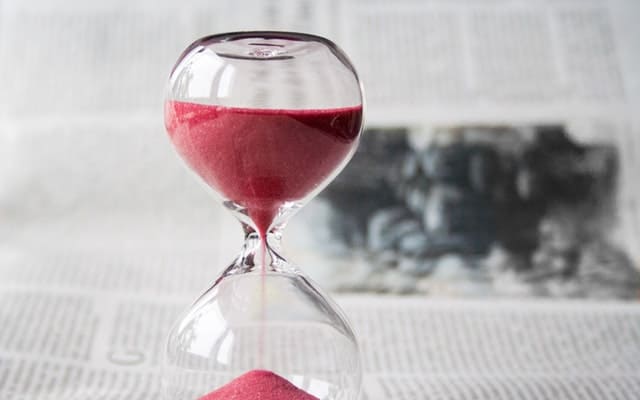How to grow grit in yourself and in adults
Since I read Angela Duckworth’s Grit: The Power of Passion and Perseverance, I have come to appreciate the role grit plays in success. I have been putting extra effort into learning how to cultivate grit, since I know that when I gain grit and change my mindset, I can achieve more.
To learn about why grit is important and why grit and determination are what you need to achieve your goals, check out by book summary on the book.
Here, I will address how you can grow grit in education, for both students and adults. I will also address how one can cultivate and gain grit for work success.
All these are the questions someone who is debating about how gritty they are and if they need to evaluate their grittiness.
Angela Duckworth defines grit as perseverance and passion for long-term goals. Grit is the ability to stick to long term goals and the ability to keep going despite adversity.
Grit, therefore, involves these elements
- Long-term goals
- Persevering in adversity
- And working persistently on your goals day in day out without letting go
 Children are often easier to shape into new behavior. With their minds so young and their curiosity so high, they retain information more. This is why it is much easier to build grit in kids.
Children are often easier to shape into new behavior. With their minds so young and their curiosity so high, they retain information more. This is why it is much easier to build grit in kids.
Parents want to grow grit in children can shape their kids to be gritty by praising their effort, showing them how to use deliberate practice and simply showing instilling a culture of persistence into them.
As an adult, however, we already are set in our ways and change doesn’t come easy. If you realized that you need to be gritty as Angela Duckworth discussed, you are not alone.
Most of us questioned how gritty we are and even took the grit scale in an effort to understand our level of grit. Like you, (since you’re here reading this article) we realized that our grit needed some growing.
How to grow your grit
Develop a growth mindset
 Having read Carol Dwecks Mindset which I have discussed earlier, I realized that I may have somewhat had a fixed mindset in some areas.
Having read Carol Dwecks Mindset which I have discussed earlier, I realized that I may have somewhat had a fixed mindset in some areas.
Before I work on growing my grit, I realized the need to change my mindset and develop a growth mindset so I could open up to growth. If you thought that ability is fixed and talent is given and fixed, before you embark on growing your grit, you need to change that mindset first.
Understand that talent is not fixed and neither is ability. Recognize that you need to develop a growth mindset and open up to learning opportunities. A growth mindset also lets you see failure as a challenge, and not as if you are destined to fail.
When you have a growth mindset, failure is just another event, showing you the need to work harder and maybe also from a different angle. It’s not a sign that you are doomed and you are a failure because as a person with a growth mindset, you don’t see ability as fixed.
Narrow down your interest and pursue it
 One of the lessons I learned from Angela Duckworth is that you cannot practice grit on something if you don’t have an interest in that area. This taught me the need to narrow down interests and pick one to persist on.
One of the lessons I learned from Angela Duckworth is that you cannot practice grit on something if you don’t have an interest in that area. This taught me the need to narrow down interests and pick one to persist on.
Grit cannot develop when you are working on one thing today and another tomorrow. Grit develops when you work on something, persistently, over a long period of time.
If you are working on something that you are not interested in, chances are that it will make you miserable and you probably put in the required amount of effort. Remember grit involved persisting on a goal over a long time, you don’t really want to work on something that you don’t enjoy.
Deliberate practice

Repetition is the mother of skill, and you become skilled at something the more practice you put into it. In order to grow grit, you need to practice more and more on your interest.
Duckworth notes that practice should not be done for the sake of practice. Instead, it needs to be deliberate practice. This school of thought is borrowed from Anders Ericsson in his book Peak. Ericsson shows that intentional practice is what achieves results, and not practice for the sake of it.
In this case, practising your skill has to be done preferably with a teacher, using mental representations, and getting immediate feedback so you can make corrections on where you can improve.
Create good habits
 What sets apart pros from amateurs is discipline. This means the discipline to get up in the morning and getting started on their work whether they feel motivated or not. If you wait for motivation to get to work, you really will never get anything done.
What sets apart pros from amateurs is discipline. This means the discipline to get up in the morning and getting started on their work whether they feel motivated or not. If you wait for motivation to get to work, you really will never get anything done.
However, forming a habit to get things done and creating a disciplined ritual out of these habits will make it stick. For example, if I determine that I will be at my desk every morning at 8 o’clock to work, it becomes a habit that I don’t have to convince myself every morning to do that.
This will help me persist on my goals and grow my grit simply by following a ritual that I have created for myself. Deliberate practice happens when such rituals have been put in place.
Be ready to fail and try again
 There is a lot of shame associated with failure. When we fail, we think it makes us look bad and we would do anything never to fail again. However, to grow your grit, you have to be willing to fail. You must be willing to look foolish sometimes.
There is a lot of shame associated with failure. When we fail, we think it makes us look bad and we would do anything never to fail again. However, to grow your grit, you have to be willing to fail. You must be willing to look foolish sometimes.
A child does not fall when trying to walk and decide, well, maybe this walking thing is not for me. A child, who does not know shame, will try to walk, again and again, until they become good at it. Growing your grit will require you to be like this child. Be ready to fail and don’t yourself be ashamed for it.
Find a purpose
 I have discussed in a previous post how finding meaning in things, and in life in general, makes it worth living. This same way, finding a purpose in what you do will make you grittier.
I have discussed in a previous post how finding meaning in things, and in life in general, makes it worth living. This same way, finding a purpose in what you do will make you grittier.
Sometimes our interest alone is not enough to hold us accountable to pursuing something. However, a sense of purpose will keep us on what we are doing. For example, if you pursue an interest, such as making music, you are doing it for you and you’ll do it so long as you enjoy it.
However, when you see how your music has inspired and transformed the lives of others, you develop a sense of purpose. You feel that what you do is beyond you and it is especially for the service of others.
Hope and optimism
 Not everything that we put our minds and effort to becomes successful. Sometimes things don’t turn out as well as we expected they would. Having hope and optimism that things will go right at some point keeps us going, and that builds grit.
Not everything that we put our minds and effort to becomes successful. Sometimes things don’t turn out as well as we expected they would. Having hope and optimism that things will go right at some point keeps us going, and that builds grit.
Optimistic self-talk helps us persevere adversity. Being optimistic lets us know that even when things are bleak at the moment, they will turn out to be better. Martin Seligman wrote a book about Learned optimism showing how we can train ourselves to be optimistic.
Build resilience
 Grit is based on passion and persistence, or resilience. To build your grit, you need to build your resilience. Resilience is the ability to bounce back in the face of adversity.
Grit is based on passion and persistence, or resilience. To build your grit, you need to build your resilience. Resilience is the ability to bounce back in the face of adversity.
Many of us give up on our goals because we failed at some point, and that broke us so much we don’t want to go through that again. Building resilience, however, means finding meaning in our failure. Not personalizing what has happened to us, but declaring such events separate from our beings.
Just because you failed does not mean that you are a failure. Resilience is being able to be stretched like an elastic and not snapping. When you develop resilience, you become grittier and develop a persevering spirit.
Give it time
 Now that you know that you can grow your grit, you are aware of it and working on it, give it time. Don’t judge yourself too harshly for not having been gritty before.
Now that you know that you can grow your grit, you are aware of it and working on it, give it time. Don’t judge yourself too harshly for not having been gritty before.
From Angela Duckworth’s grit scale, it shows that grit grows with age. Older individuals tend to be grittier than younger ones. There are arguments that the older generation probably has a better work ethic than the younger ones. Or simply that the older you get, the more you stick to one thing over a long time and don’t feel the need to jump onto the next shiny thing.
As people mature, they get grittier. As you mature as well, you will get grittier. Grit is about perseverance and persistence, and when you give yourself time to grow your grit, you are putting grit into action.
Recommended book: Grit: The Power of Passion and Perseverance. No time to read? Get the key lessons from the book in just 15 minutes on Blinkist where you can read or listen to the summary.






Comments